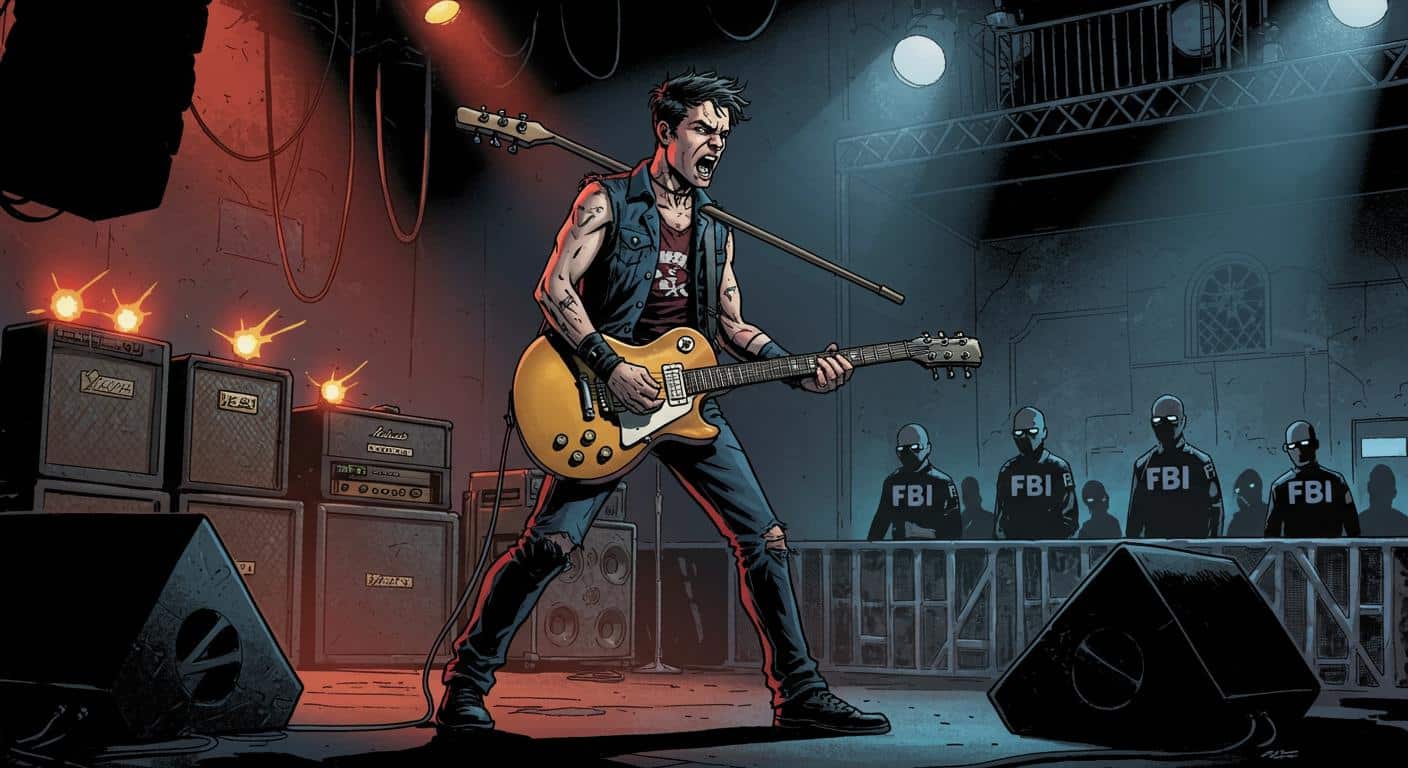On the ever-expanding list of “rock star anecdotes that sound like urban legend,” it’s hard to top the reveal—reported by The Mirror—that My Chemical Romance’s guitarist Frank Iero ended up grilled by the FBI over a particularly provocative punk track. And no, it wasn’t for traditional music scene shenanigans; the fuss came courtesy of his side project Leathermouth and a not-so-subtly titled song: “I Am Going to Kill the President of the United States of America.” Subtlety, apparently, was not the assignment.
Lyrical Risks and Federal Consequences
As documented in The Mirror’s reporting, Frank Iero’s time spent fronting Leathermouth placed him firmly on the FBI’s radar, thanks to that song’s unambiguous title and lyrics like, “I’d shed your blood to save the world / You’re living a lie straight to hell.” Following the track’s release, Iero recounted how agents arrived at his home, conducted searches, and even grilled his family for hours.
Recounting the ordeal in an interview with Alternative Press—summarized by The Mirror—Iero described the Secret Service officers as having the full “Men In Black vibe” complete with dark suits and sunglasses, joking, “I thought they were going to do the mind-erase thing.” Federal attention, it turns out, also comes with unexpected costs; as Iero put it, “The government comes to your house, searches everything and talks to your wife for hours. Then you have to get a real expensive attorney to keep you out of prison for five years.” Whether there’s a line item for “punk defense fund” in his household budget remains unconfirmed.
Intent and Irony: Punk Art Meets Governmental Reality
Pressed by agents, Iero reportedly explained that he wrote the song from an outsider’s perspective, not as a personal declaration. “I was on tour with [My Chemical Romance] at the time, and every time I turned around, there were Anti-American rallies. I wrote a song from the standpoint of the rest of the world. It wasn’t from my personal point of view—it was just from someone who sees warmongering going on,” he stated, per The Mirror’s account. The intent seems clear, at least to anyone with even a passing knowledge of satire or political commentary in punk music. Whether clarity was a factor in the investigation is another story.
Despite explaining the artistic perspective, the authorities reportedly banned Iero from performing or re-releasing the track in any capacity, under threat of a lengthy prison sentence. As Iero summarized, “I’m married and I want to have kids. I don’t want to go to jail for five years,” a sentiment that probably resonates with even the most dedicated of punks. There’s a certain irony in creating a song title “as blatant as humanly possible”—as Iero himself put it—only to find out that government literalism is, in fact, a thing.
Fans, Punk Legends, and the Interpretive Minefield
The Mirror highlights the reactions from YouTube commenters as this story resurfaced, with fans alternately praising Iero’s punk credentials and lamenting the cost of controversy. Some responses, captured by the outlet, exclaim, “Frank is also my favorite… he’s punk as f—!!!” or share the comically niche revelation, “Every band I get into (two of them) get investigated by the FBI. (For context, I’m talking about Leathermouth and The Monkees.)” It’s a level of musician cross-over that even the seasoned oddity-tracker might pause to admire.
All this does leave plenty for the archivists and armchair legal experts to ponder. Where exactly is the line between protest and perceived threat, especially when performance art leans into provocation? The story suggests that, in practice, official interpretation of intent might be about as nuanced as, well, a punk rock song title.
At least in Iero’s case, the personal consequences were both oddly bureaucratic and steeply practical: don’t perform this song again, or trade the touring van for a place in federal custody. One has to wonder if punk, at its core, isn’t about testing these boundaries—not merely for the spectacle, but to highlight how easily art, protest, and heavy-handed authority can collide in the strangest of ways.
Isn’t there something unavoidably fascinating about a world in which a song title, rather than a criminal act, places a guitarist in the government’s crosshairs? Perhaps that’s the oddest detail of all: thirty years into the Information Age, a bit of musical hyperbole can still trigger a very literal—and very official—response.







